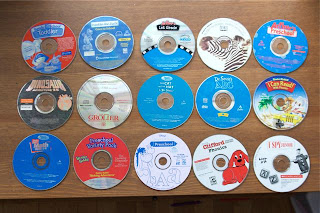I haven't had a strong opinion on what the feds should do about the AIG bonuses you and I are paying to the team responsible for history's greatest financial disaster. It feels like only one manifestation of a much bigger failure of the compensation market, a zero-bound type failure because the winners now work to win, not to live.
In other words, the winners of the compensation wars can leave the game whenever they want. They play by different rules than the rest of us. We can change that in the future, but it's hard to fix it today.
David Leonhardt's observation does a nice job of skewering one common rationale however ...
Ah, retention pay. It has been one of the great rationales for showering money on chief executives and bankers regardless of how well they are doing their jobs. It’s just that the specific rationale keeps changing.
In the booming 1990s, companies supposedly had to pay retention bonuses because executives had so many other job opportunities. There was a war raging — a war for talent, said McKinsey & Company, the consulting firm.
Then came the aftermath of Enron, when new scrutiny and regulations apparently made some chief executives wonder if they still wanted their jobs. “I’m thinking of actually getting out,” David D’Alessandro, the head of John Hancock Financial Services, reported hearing from one fellow chief executive. The antidote to such doubts? Retention pay, obviously.
Now comes Mr. Liddy, the government-appointed chief of A.I.G., defending multimillion-dollar bonus payments for the people who run the small division that brought down the company. If the government doesn’t let them have their money, they will walk away, Mr. Liddy says, and nobody else will know how to clean up their mess...
So this is a big and deep problem, but skewering AIG's winners is most likely a distraction. We've been taken, but if we spend all our energy beating up on these particular winners we're likely to forget about the bigger failure in the global compensation market.
On the other hand, I do have a strong opinion that Edward Liddy, the winner who returned from retirement to manage AIG [1], showed the insight of a gnat when he wrote (italics mine) ...
... We cannot attract and retain the best and the brightest talent to lead and staff the A.I.G. businesses — which are now being operated principally on behalf of American taxpayers — if employees believe their compensation is subject to continued and arbitrary adjustment by the U.S. Treasury...
Even in the context of our day, that's breathtaking. It's so revealing that Liddy could write that, and that Larry Summers didn't blow a gasket reading it.
Maybe it's just basal ganglia running on automatic. CEO's everywhere call their team the "best and the brightest" even when they've already decided to fire everyone and try with a new batch of losers. In which case using the phrase in this context is merely an idiotic mistake.
It's more likely, however, that Liddy believes he and his team are indeed "the best and the brightest". Winning does that to primates, it's in our genes and our neurochemistry. Unfortunately, Geithner and Summers may believe it as well.
Whatever else comes of this bit of interesting times, let's skewer, rend and bury the phrase "best and the brightest" for all time. CEOs, find another euphemism for "you're all a bunch of losers but I can't get rid of you today".
[1] Update: Turns out if AIG goes bankrupt Liddy loses a massive retirement package that he's probably depending on. So he does have skin in the game.
Update 3/19/09: I think this is right ...
Why AIG paid the bonuses (Nate Silver, 538)
The thing about these "bonuses", however is that they're not really bonuses, which we usually think of as incentive-based compensation. On the contrary, they are something the opposite of bonuses: they took compensation that had been incentive-based and guaranteed it...
The fundamental issue here what I call asymmetrical agency bias. We as human beings tend to attribute our results to skill when we are performing well, but (bad) luck when we are performing poorly...
... I'm interested in compensation and incentivization structures in general. Aggregate compensation throughout the financial services industry, I would guess, is much higher than is economically optimal (there is a lot of evidence that this is true of CEO pay). A lot of people are getting paid for what is thought to be skill but is really just luck (or economic rent).
If, as at most hedge funds, the employees are buying in with their own capital and bearing a lot of the downside risk, that is one thing. At a publicly-traded company, however, those employees are taking profits out of the shareholders' hands. And at a publicly-traded company that happens to be owned by the taxpayers, they're taking money out of the taxpayers' hands.
The compensation paid to AIG's employees, however, is less a moral failure than a market failure. We don't like to admit to market failures because they indict our collective judgment; instead we scapegoat and move on. But there are some ways to address these market failures; the more time we spend focusing on those, and the less on AIG, the more money we the taxpayers will save ourselves in the end.
